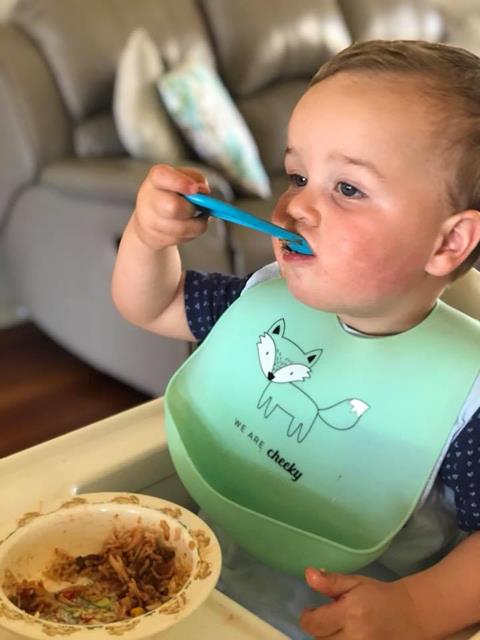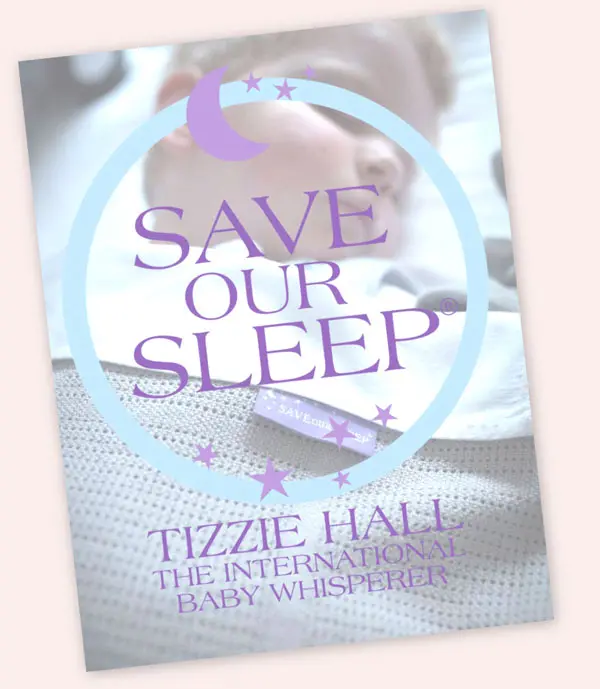Some babies rise early because all of their nutritional needs are not being met. In some cases, introducing meat or fish into the baby or toddler’s diet stops the early rising. In other cases, certain types of baby food can cause early rising, I have also found custard of any variety, be it store bought, homemade from custard powder or homemade from scratch to be a problem, so it’s worth looking into your baby’s diet if she is rising early.
After waking from a sleep of 40 mins or less you find, while encouraging more sleep, your baby continually squirms and cries out without going back to sleep, hunger might be causing the catnapping and you may need to look at feeding your baby more milk. This can involve making sure you always offer both breasts, and possibly a top up of expressed breast milk in a bottle straight after a breastfeed, or making sure you offer more formula if your baby drains his bottle.
If your baby is over sixteen weeks old it may be that milk alone is no longer satisfying him and you should think about introducing solids – see my weaning advice in the Feeding Book.

Babies have varying appetites, so as long as your baby is sleeping well during the day and night and is content, the chances are he is getting enough to eat. The following is a rough guide to what your baby might eat.
Please remember that your baby will also need milk feeds because milk is the most important food until he is a year old. For a guide to how many milk feeds your baby will have, please see my Feeding Book.
Breakfast: Five tablespoons of infant rice cereal mixed with five cubes of fruit and roughly 80 ml of formula or expressed breastmilk. Followed by four cubes of fruit and yoghurt, if he is having yoghurt by now.
Lunch and dinner: Five cubes of vegetables and chicken or lamb (see recipes on pages 203–9) mixed with two tablespoons of infant rice cereal and roughly 40 ml of expressed breastmilk or formula. Followed by four cubes of fruit mixed with cereal or fruit and yoghurt.
At nine months you should see your baby starting to cut down on how much he drinks at his day feeds. This is normal and as he approaches his first birthday he will take less and less at these feeds until they are gone when he is about one year old.
Breakfast: Eight tablespoons of porridge mixed with seven cubes of fruit and about 90 ml of expressed breastmilk or formula. Followed by six cubes of fruit and/or yoghurt, then offer some food from the family table.
Morning and afternoon tea: Milk feed or half feeds and a very small serve of teething breadsticks, Cruskits, cheese, banana, grated apple, whole pear, watermelon or other fruits depending on your baby’s age.
Lunch and dinner: Seven cubes of a baby meal in purée texture, roughly one third meat. Example foods are chicken, lamb or beef casserole or fish pie (see the recipes in chapter ten). Followed by puréed fruit alone or mixed with expressed breastmilk or formula and rice cereal or yoghurt.

Join our newsletter and receive a FREE download of the world famous Save Our Sleep Safe Bedding Guide delivered straight to your inbox!
PLUS you will also receive a thank you gift offer shortly after.